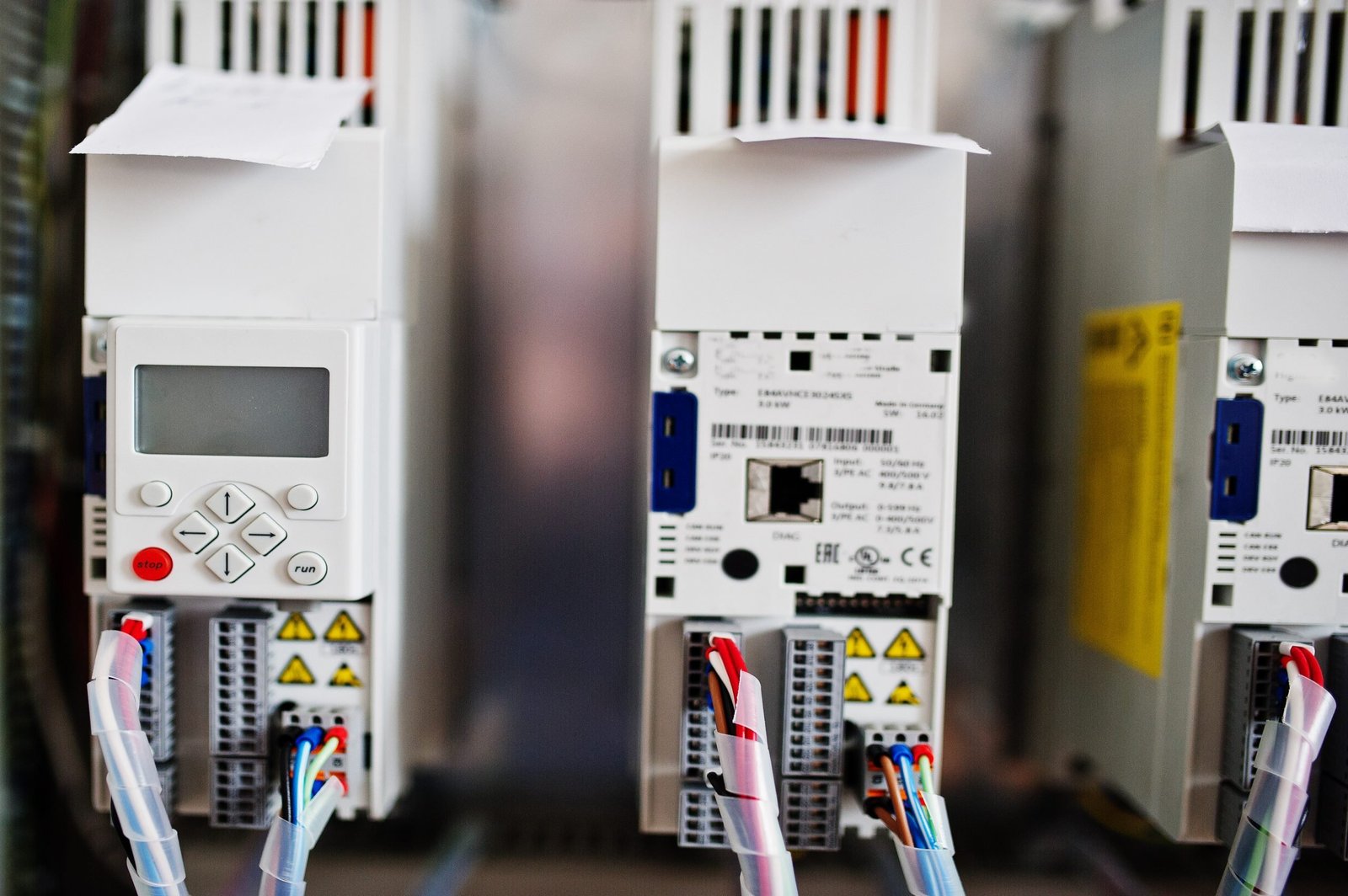
Electrical panel, electric meter and circuit breakers. Electric frequency converter, motor speed controller, rework station.
Electricity powers nearly every aspect of modern life, from lighting to appliances, entertainment systems to home security. While homeowners often focus on upgrading individual devices, the electrical panel is one of the most crucial yet overlooked improvements. The electrical panel serves as the central distribution system, managing the flow of electricity throughout the home. An outdated panel can pose serious risks, reduce efficiency, and prevent homeowners from using modern technological advancements.
Understanding the Function of an Electrical Panel
An electrical panel, a breaker box, regulates the electricity that flows into a home. It connects the main power supply to individual circuits, ensuring energy is distributed safely and efficiently. Circuit breakers within the panel serve as protective measures, shutting off power to specific circuits in case of overload or faults.
Older homes often have outdated electrical panels that struggle to meet current power demands. With the rise of advanced appliances, smart home technology, and energy-efficient solutions, outdated panels can become unreliable, leading to electrical failures and safety hazards.
Signs That an Electrical Panel Needs an Upgrade
Homeowners may not always recognize the signs that their electrical panel requires an upgrade. Flickering lights, frequent breaker trips, and overheating outlets indicate that the panel may be overloaded or unable to distribute power efficiently. Additionally, an upgrade is highly recommended to improve the safety and reliability of a home that still uses a fuse-based system instead of modern circuit breakers.
Other warning signs include buzzing sounds from the panel, discoloration around outlets, and a burning smell near the breaker box. These symptoms suggest electrical faults that could lead to fires or system failures. Scheduling an inspection with a licensed electrician can help determine whether an upgrade is necessary.
Enhancing Safety with a Modern Electrical Panel
One primary reason to upgrade an electrical panel is safety. Electrical fires account for a significant percentage of home fire incidents, many of which stem from outdated wiring and overloaded systems. Modern panels include advanced circuit protection, reducing the risk of overheating and electrical faults.
Ground fault circuit interrupters (GFCIs) and arc fault circuit interrupters (AFCIs) are integrated into newer electrical panels, offering additional layers of protection. These safety mechanisms detect irregular electrical currents and shut off power before hazardous conditions arise. Updating a panel ensures compliance with modern safety standards, minimizing risks for homeowners and their families.
Supporting Increased Power Demands
Today’s households consume more electricity than ever before. High-powered appliances, home automation systems, and electric vehicle chargers require substantial energy. Often limited to 60 or 100 amps, older electrical panels struggle to handle modern electrical loads. Upgrading to a 200-amp or higher panel accommodates increased energy usage and prevents system overloads.
Upgraded electrical panels benefit homes undergoing renovations or expansions. Adding new rooms, installing air conditioning units, or converting spaces into home offices increases power demands. A modern panel ensures seamless energy distribution without compromising safety or efficiency.
Improving Energy Efficiency and Reducing Costs
A well-functioning electrical system contributes to overall energy efficiency. Outdated panels may have poor power regulation, leading to unnecessary energy waste and higher electricity bills. Modern panels support energy-efficient appliances and provide stable voltage regulation, ensuring that devices operate at optimal performance levels.
Additionally, upgraded electrical panels allow homeowners to integrate renewable energy sources. Those interested in solar panel installations, battery storage systems, or energy management tools require panels supporting advanced configurations. Investing in an upgraded electrical system reduces long-term energy costs while promoting sustainability.
Increasing Home Value and Market Appeal
An updated electrical panel adds significant value to a home, making it more attractive to potential buyers. Homebuyers often look for properties with modern electrical systems, as outdated panels may lead to costly repairs or replacements. A newly upgraded panel signals reliability and compliance with current building codes, enhancing a property’s marketability.
An electrical panel upgrade is a worthwhile investment for homeowners considering future resale. It eliminates concerns about electrical failures and ensures a smoother home inspection process when selling. The presence of a high-capacity, modern panel reassures buyers that the property is equipped to meet evolving energy demands.
Choosing the Right Electrical Panel Upgrade
Upgrading an electrical panel requires careful consideration of energy needs, home specifications, and compliance with local electrical codes. Consulting a licensed electrician like Dr electrician ensures the new panel meets safety regulations while accommodating future power requirements. Professionals assess load capacity, circuit configurations, and installation requirements to determine the most suitable upgrade.
Selecting a panel with ample circuit spaces allows for flexibility in adding new appliances or systems. Homeowners should consider panels with innovative monitoring features, enabling real-time energy consumption tracking and fault detection. Investing in an advanced panel future-proofs the home against increasing technological demands.
Conclusion
Upgrading to a modern electrical panel is essential for safety, efficiency, and long-term reliability. Outdated panels pose risks, limit energy capacity, and prevent homeowners from accessing advanced technological benefits. A new electrical panel enhances safety measures, supports increased power demands, improves energy efficiency, and boosts home value.
Prioritizing an electrical panel upgrade ensures a secure and well-functioning system, providing homeowners with peace of mind. Consulting professionals, selecting the right capacity, and integrating modern features lead to a sustainable and future-ready electrical system. With proper investment in electrical infrastructure, homeowners enjoy uninterrupted power, reduced risks, and enhanced energy management.




